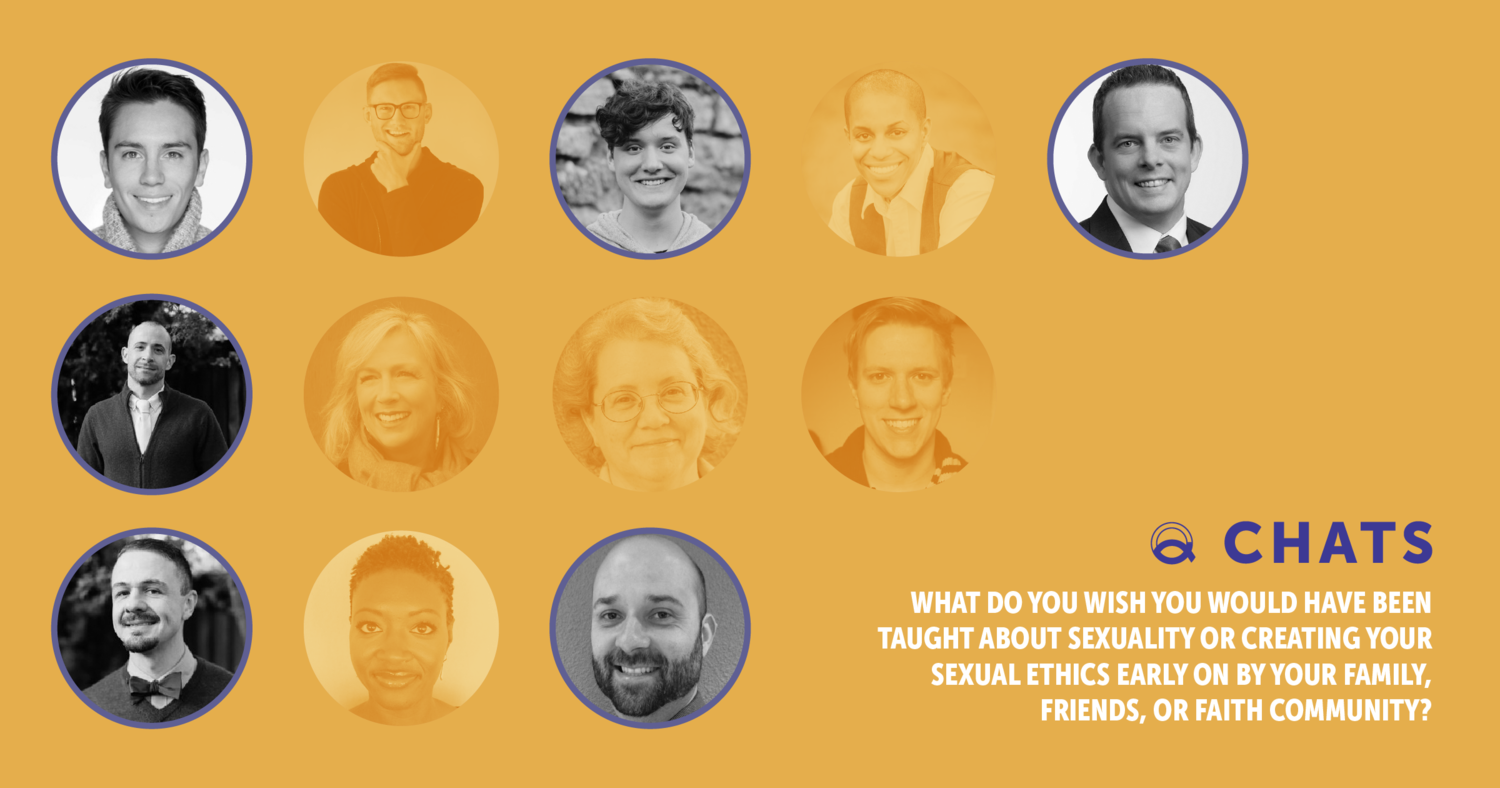Q Chats | Sexual Ethics | Week 3 (Part 2)
Q Christian is a community comprised of people with diverse backgrounds, differing theological beliefs, and a variety of ethics. Q Chats are designed to be a deep dive into self-discovery by learning from one another, and spiritually growing side-by-side. Q Chats cannot be effective without you! We invite you to participate. Share your thoughts, stories, and perspectives. Your influential voice can make a difference in the lives of others.
What do you wish you would have been taught about sexuality or creating your sexual ethics early on by your family, friends, or faith community?
David Khalaf
I wish there had been more open talk about sex and sexuality growing up. Adults in my life rarely talked about it with me, and so the message I got was that sexuality was something secretive and perhaps even embarrassing. It's possible I would have developed less shame about my sexuality if I saw adults in my life talking about and embracing their own sexuality with more freedom and openness. Now that my husband and I are adults, we try to be conscious about how we can make conversation about sexuality more safe and accessible to the youth in our lives.
Constantino Khalaf
I wish I had been taught to think about sex as a conversation, one in which you must be attuned not only to what you are saying but also to what your sexual partner is saying. I wish I had learned early on to see others better through sex, so that I would have been more attuned to their emotions, their humanity, and the presence of the divine in them.
Shane Bauman
Growing up in a non-affirming church I never heard that my sexuality was normal or something that God would bless. So obviously I wish that I had been taught that being gay was OK and that I didn’t need to hate myself.My church didn’t talk much about sex and there always seemed to be a lot of shame around the topic of sex. So I wish I would have been taught that sex and sexual desire are part of God’s creation and that when God says we are wonderfully made, this includes our sexuality and our sexual desires.I also wish I had been taught to figure out personally what I believe about sex. Sexual ethics is not about being told what to believe but rather figuring out for yourself what you believe about sex and then living in a way that is consistent with that belief.
Isaac Archuleta
I wish I could have grown up in an affirming church where not just my sexuality was spoken talk of openly with guidance and encouragement (with boundaries), but one in which my personality was validated, as well. Knowing that sex has become an act that feels so personal, I wish I had known that when I express myself sexually it is good, blessed, and affirmed by God. This lesson would have saved me many years making shamed-based decisions.
Sam Locke
I wish sexuality had simply been talked about. My aunt was in a long-term partnership with another woman who was fully included (from my perspective) in our family yet it wasn’t until I was a freshman in college that I realized they were a committed couple. As a dad and as a pastor, I hope to create environments where people feel safe to ask questions and converse about sexuality free from judgment and expectations which means being comfortable with myself and not being afraid to talk about my own sexual identity and sexual practices. As weird as it may sound, I think it is especially important to normalize behavior related to sexuality by simply discussing it and not being afraid to live as your genuine self (i.e. being on dating apps, going to gay bars, etc.).
Nathanial Green
All I had ever known as the alternative to my constrictive view of sexuality was “anything goes”. But liberation doesn’t mean “anything goes”–that’s a disingenuous premise. Instead, it presupposes that our sexuality or positive expressions thereof–gay, straight, pan, bi, ace, poly–are inherently good and something to cultivate, not repress. Justice precludes the possibility of “anything goes”, as does mutuality, consent, and equity. When I celebrate the sexual revolution, I’m celebrating greater societal equity for women, LGBTQ+ people, and those historically oppressed by predominantly Eurocentric expressions of toxic sexuality. I’m celebrating the dismantling of toxic masculinity and the ways we commodify bodies. Honorable mention: I don’t think the Bible is a particularly great place to be looking for a healthy, equitable sexual ethic.








